 | Frank Herbert
Herbert’s Dune series is the best and most sophisticated science fiction series ever written. It introduces dozens of startling new concepts and is extremely easy to pick up. It also gets better as you get older and understand more of the economic, military, cultural, religious and philosophical concepts underpinning Herbert’s world. I’ve read the series half a dozen times, and now find I enjoy the later books (especially God Emperor of Dune) the most.
Whatever you do, however, DO NOT read the “authorised” books in the Dune universe penned by Herbert’s son and author Kevin J. Anderson. They butcher Frank Herbert’s legacy and are atrocious.
Start with: Dune
|
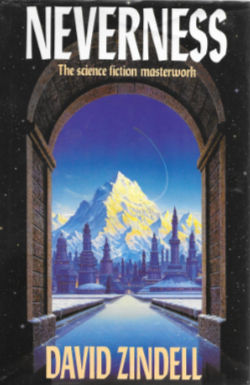 | David Zindell
Very few people have heard of his books, but Zindell’s four book series Neverness/A Requiem for Homo Sapiens should be considered only a shade below Herbert’s Dune series in terms of its visionary ideas and sheer scope. A highly personal meditation on humanity’s possible future evolution — in all directions. I can’t recommend this series highly enough, especially for those who have read Dune and its sequels.
I don’t usually recommend Zindell’s separate Ea Cycle fantasy series, though — it’s not on the same level, although it is serviceable.
Start with: Neverness
|
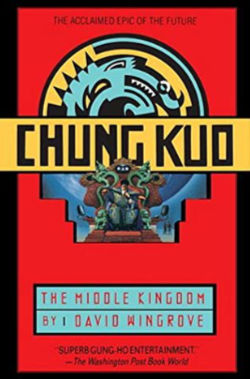 | David Wingrove
Another chronically overlooked master like Zindell, Wingrove’s incredible Chung Kuo epic series, which envisions a future Earth where a Chinese empire takes over the planet and completely develops it, is one of the best epic sci-fi series ever written.
It’s been hard to find until recently and was not correctly finished. It’s being repackaged and is now available widely, although we’re not quite sure we approve of all the changes. But however it ends up being re-published, Chung Kuo is a must-read for any science fiction fan.
Start with: Chung Kuo
|
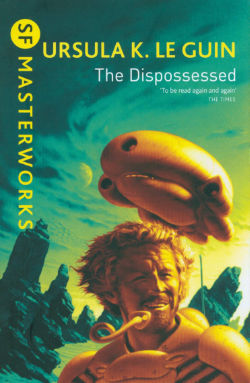 | Ursula K. Le Guin
Best known for her awesome Earthsea fantasy series, which is required reading for any fantasy fan. It’s very easy to get into, especially for teenagers. However, Le Guin’s true masterwork is the dystopian science fiction novel The Dispossessed, which is a meditation on the nature of the diametrically opposed anarchist and capitalist social democracy political theories. The gender-bending novel The Left Hand of Darkness is also superb.
Start with: The Dispossessed
|
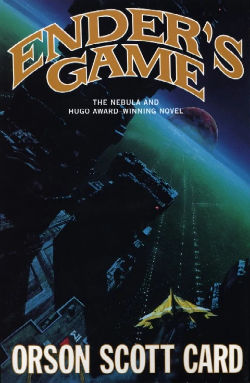 | Orson Scott Card
Card is best known for his brilliant novel Ender’s Game. Don’t be fooled by the mediocre film adaptation — this book is a must-read and offers the best vision I’ve ever seen for what it’s like to be a child who’s a little too intelligent for those around them. It’s also a startling meditation on war and the possible nature of alien intelligences. Card continues the series for three more novels after Ender’s Game, but I don’t usuallyrecommend venturing beyond that, as things get a little formulaic.
That’s not all, though — I also recommend Card’s excellent Homecoming Saga, and if you’re still enjoying Card after that, get stuck into the Alvin Maker series. Card is prolific.
Start with: Ender's Game
|
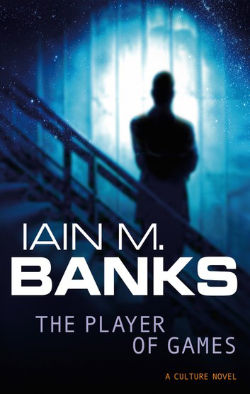 | Iain M. Banks
Banks’ Culture series offers a smooth vision of a future galactic utopia where humans can have anything they want — and then spins stories of people and events on the less pleasant borderlines of that reality. Start with The Player of Games, then pick up the best in the series, Look to Windward. After that the rest will go pretty easily. Just be prepared to have your brain knocked out of orbit as you fully realise the grandeur and humanity of the concepts Banks brings to his work.
Start with: The Player of Games
|
 | Dan Simmons
Simmons’ four book Hyperion Cantos loses a little by the end, but the first couple of books are page turners that you’ll be staying up all night for. Set in a utopian future galactic human society which starts coming apart at the seams, infused with a great deal of literary references and even some of the horror writing which Simmons brings to his latter novels. Right from the start of Hyperion, you’ll know you’re in the hands of a science fiction master.
Start with: Hyperion
|
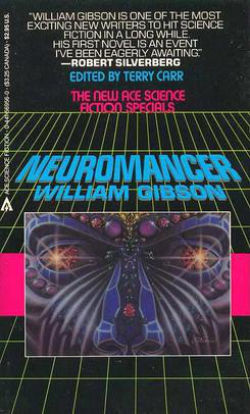 | William Gibson
The father of fast-paced, drug-addled cyberpunk fiction, Gibson’s Neuromancer is an absolute must-read and still relevant to current technological trends, several decades after it was first published. Gibson’s other books (including the two follow-up novels) are not quite as good, or as edgy with their ideas, but they’re still worth reading if you enjoy Neuromancer.
Start with: Ender's Game
|
 | Isaac Asimov
Regarded as the undisputed father of the genre, Asimov penned many hundreds of books, with many ranging across all aspects of science fiction. It’s probably best to start with his stellar Foundation epic space empire series, but Asimov’s ‘Robot’ series is also incredible, starting with I, Robot. And there’s a stack more. Asimov’s books are also very accessible and easy to pick up for younger readers. But there are many deep concepts here.
Start with: The Dispossessed
|
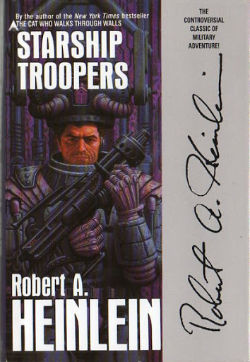 | Robert Heinlein
Probably the most successful outside the box thinker amongst the science fiction masters, Heinlein wrote a variety of books in a variety of styles, but all with angles that fundamentally question modern society’s most basic ideas. Heinlein loves to bend politics, sexuality, violence and even family values out of recognition. After you finish a Heinlein novel, it’s common to feel really weirded out. I recommend starting with the easily digested Starship Troopers and then moving onto Stranger in a Strange Land and then The Moon is a Harsh Mistress. If you survive those, there are plenty more.
Start with: Starship Troopers
|
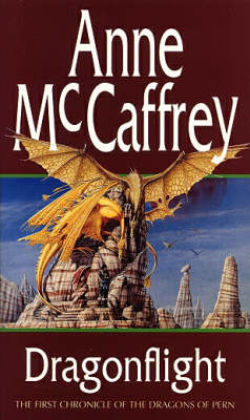 | Anne McCaffrey
McCaffrey does light science fiction which is easy to get into. Her best books are probably the Dragonriders of Pern series, which are set on an alien planet where the human descendents are forced to bond with local ‘dragons’ to eliminate natural threats. Start with Dragonflight; the series goes on for quite a while. However, McCaffrey has a heap of other fun series, ranging from the Brain & Brawn Ship series to the sexed up Crystal series to things to do with psychokinetic and telepathic powers and even dinosaurs on alien planets. It’s all fun and accessible and recommended reading.
Start with: Dragonflight
|
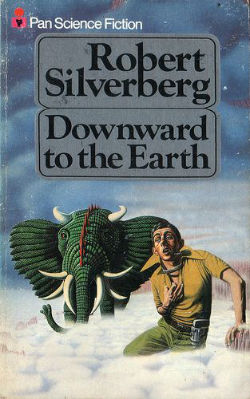 | Robert Silverberg
One of the most prolific amongst the classic science fiction masters. Some of our favourite Silverberg works include Downward to the Earth, Up the Line, Tower of Glass, The World Inside, The Book of Skulls and the Majipoor series. Like Heinlein, Silverberg often likes to delve deep into the human psyche, including in the realm of sexuality. He’s mostly known for highly entertaining stand-alone novels.
Start with: Downward to the Earth
|
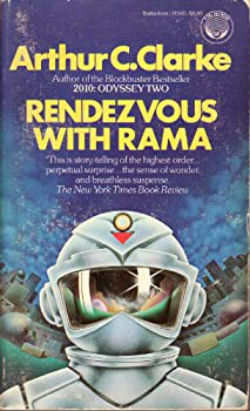 | Arthur C. Clarke
Another one of the genre’s classic masters, Clarke is best known for his novels 2001: A Space Odyssey and Rendezvous with Rama. Both had a number of follow-up works. Clarke’s writing really opened up possible futures around humanity’s no doubt imminent journeys into the solar system for many readers, coupling a grand sweeping vision with explorations of humanity’s possible future interactions with alien and artificial intelligences.
Start with: Rendezvous with Rama
|
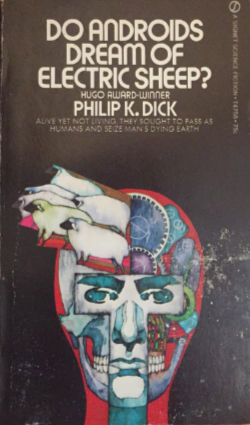 | Philip K. Dick
If one science fiction master could be considered to be on an intensely personal far out drug trip, it would be Philip K. Dick. His books Do Androids Dream of Electric Sheep?, Ubik, The Man in the High Castle and others are considered essential reading somewhat in the style of the beat writer William S. Burroughs, and very much shape a dark and disturbing science fiction vision which still influences many writers today.
Start with: Do Androids Dream of Electric Sheep?
|
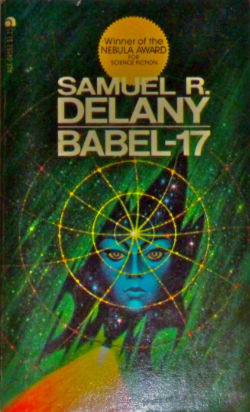 | Samuel R. Delany
Known best for stand-alone novels such as Babel-17, Nova and Dhalgren, Delany is one of the deep thinkers of the science fiction world. His books often start off in an accessible manner, before introducing fascinating concepts in areas such as language and sexuality that will entrance the reader. Delany also ventured into fantasy through his Return to Nevèrÿon series.
Start with: Babel-17
|
 | Vernor Vinge
A mathematics and computer science professor, Vinge is one of the few science fiction writers to have taken a solid look at the real dynamics of the gigantic universe around us and how its structure might influence the evolution of living beings. One example might be the concept that the laws of physics might see some variation depending on how close you are to the centre of humanity’s own Milky Way galaxy. This deep thinking and his storytelling ability make Vinge a must-read science fiction master.
Start with: A Fire Upon the Deep
|
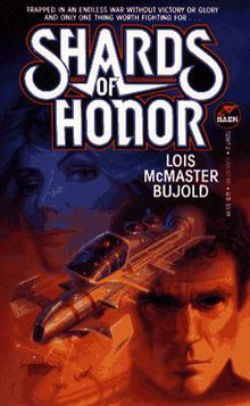 | Lois McMaster Bujold
Bujold’s science fiction novels, centred around the Vorkosigan space empire, intermix the personal with the political to outline a series of adventures that would not be out of place in a similar series set in the 19th or 20th centuries. In many cases the availability of futuristic technology is almost incidental to Bujold’s classic storylines, in a similar vein as George R. R. Martin’s A Song of Ice and Fire series often makes little use of high fantasy magic tropes, preferring to focus on political issues. But this space opera-style series still works well and will appeal to most sci-fi readers. Just don’t ask me to detail the chronological order of the series … they can be a bit of a timeline jumble at times ;)
Start with: Shards of Honor
|

















